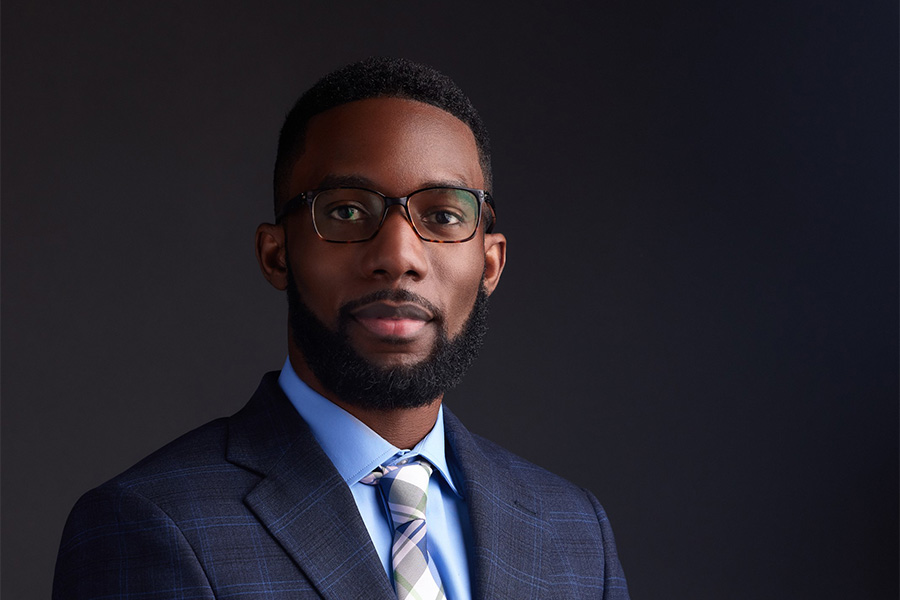Data Science in Detail: Samuel Mirtil

Samuel Mirtil is working towards a master’s degree in data science with a focus on statistics from the Florida State University Interdisciplinary Data Science Master’s Degree Program, part of the College of Arts and Sciences. Prior to his time at FSU, he earned an undergraduate degree in statistics from Florida International University.
What year are you in school, and when do you expect to graduate?
I am in my final semester of graduate school pursuing an M.S. in the Interdisciplinary Data Science Master’s Degree Program on the statistics track. I expect to graduate in December 2022.
Where are you from, and what made you choose FSU?
I am from Miami, Florida, where I studied at Florida International University to get my B.S. in statistics with a minor in mathematical sciences. I was also one course shy of receiving a minor in computer science. Because I wanted to stay in Florida, I looked up the top data science programs in the state and FSU was right near the top. Additionally, one of my former statistics professors at FIU, Hassan Zahedi, received his master’s degree from FSU and gave me a good impression of the school.
What inspired you to choose your major and specific area of research?
I’ve been interested in data science for a long time now because it combines three of the fields that I enjoy most: mathematics, statistics and computer science. When I was an undergraduate student, there weren’t many bachelor’s programs in data science. After things began returning to normal following the COVID-19 pandemic, the timing seemed right for me to return to school to pursue a master’s degree.
What has been your favorite thing about the IDS program so far?
I like the variety of tracks available in the IDS program: scientific computing, mathematics, computer science, and statistics. This allows students from different backgrounds to pursue a track that matches their undergraduate majors. It also gives students the opportunity to try out classes in a different field within data science. I feel there are different approaches to data science, and I like that the IDS program reflects that.
What on-campus resources have helped you achieve success?
There are two on-campus resources that stand out to me. The first is the FSU Reading-Writing Center, which has helped me immensely in writing my essays. Writing is not a strength of mine, and I appreciated the advice and feedback given during my appointments. The second resource that has helped me is the FSU Career Center. The Career Center liaisons offered great advice on how to craft my résumé and cover letters. They helped me to update the résumé I made during my undergraduate years to better coincide with my current stage of life.
Are there any faculty or staff who have helped or inspired you? Why/how so?
Many professors have inspired me through their mastery and expertise in their fields and their ability to teach effectively. These include assistant professor of mathematics Thomas Needham, professor of scientific computing Anke Meyer-Baese, professor of statistics Fred Huffer, assistant professor of philosophy Zina Ward, and professor of statistics Vic Patrageneru, to name a few.
Given your experience in the IDS Program, what advice would you give to fellow students considering applying to the program?
I would advise incoming and current IDS students to try to have a portfolio created by the time of graduation. This could include some coursework, research, Kaggle competitions, or personal projects.
Tell us more about Kaggle competitions?
Kaggle competitions are essentially data science competitions. Different companies will provide datasets and a question regarding the dataset, then the participants will try to come up with a model and the one with the highest score wins. Sometimes, there is money awarded to the winners. The FSU Department of Statistics also holds a competition for FSU students and I participated in the Spring 2022 contest. I did not win, but it was a great experience and very competitive. It also made me realize how skilled my peers, the other FSU students, are.
Based on the difficulty of these competitions, I believe that high scorers would benefit from including it on their résumé or portfolio while gaining some experience working with real-world datasets instead of the clean, prepared datasets often used in class.
What are your plans after graduation?
Following graduation, I plan to work in the data science industry. I am currently in talks and interviewing with prospective companies and, in addition, my current job is offering me a promotion. Some of the positions I am applying to include software engineer, data analyst, data scientist, statistician and software developer. If I find a remote job, I may take one or two extra courses as a non-degree-seeking student post-graduation.

